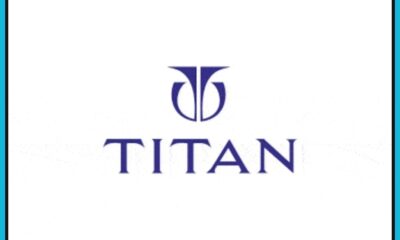Commerce
The RBI Is Examining Banks’ Exposure To The Adani Group Entities And Seeking
Published
1 year agoon

He RBI Has Already Contacted Some Of The Large Banks That Are The Group’s Lenders And Is Corresponding
According to persons acquainted with the situation who spoke to Moneycontrol, the Reserve Bank of India (RBI) is investigating the specifics of banks’ exposure to the companies in the Adani group and has requested the current condition of these loans.According to one of the individuals described above, the RBI has already contacted some of the big banks that are the group’s lenders and is corresponding with them to confirm the exposure information.
Following the termination of the company’s Rs 20,000 follow-on share sale, a recent research report by a short-seller caused the shares of the Adani group firms to fall sharply. Up to the time of publication, the Adani Group did not reply to an email requesting comment on this story. A different email sent to the RBI also asking for an official statement elicited no response.
A CLSA analysis states that just 38% of all debt is held by banks, which includes term loans, working capital, and other facilities. Additionally, according to the research, bonds and commercial papers account for 37%, borrowing from financial institutions accounts for 11%, and intergroup lending accounts for the remaining 12–13%.
Related Stories
Punjab National Bank, which has an exposure to the Adani group of about Rs 7000 crore, and IndusInd Bank are two lenders to the group. The Adani Group CFO stated that the organization’s gross debt is $30 billion, of which $4 billion is kept in cash, in an interview with CNBC TV18 on February 2. Singh noted that of the $30 billion in overall debt, $9 billion is owed by Indian banks.According to a Reuters story from February 1, the market watchdog SEBI is investigating the most recent drop in the price of Adani Group shares and any potential violations in a share sale by the group’s main company.
In response to a US short-seller claim, the Securities and Exchange Board o India (SEBI) inspection was conducted on the same day that Adani Group shares fell, causing losses at seven publicly traded businesses to reach $86 billion, according to the agency.
At least two international lenders have stopped recognising Adani bonds as security for margin loans, adding to the group’s problems. In response to claims of fraud by short seller Hindenburg Research, Citigroup Inc.’s wealth arm has ceased taking stocks from Gautam Adani’s group of companies as collateral for margin loans.As Adani’s troubled business sinks deeper into turmoil, the US lender made the decision to impose lending restrictions shortly after Credit Suisse Group AG made a comparable adjustment, according to the article. Prior to this, the Credit Suisse Group AG ceased to accept the bonds of the Gautam Adani group of companies as collateral for margin loans to its private banking clients.
According to Bloomberg, which cited anonymous persons familiar with the situation, the private banking division of the Swiss lender has given notes sold by Adani Ports and Special Economic Zone, Adani Green Energy, and Adani Electricity Mumbai Ltd. a zero lending value. According to the news source, it has earlier proposed a loan value of roughly 75% for the Adani Ports notes.

You may like
-


The Supreme Court rules that former Jharkhand Chief Minister Hemant Soren’s plea in a money laundering case was “infructuous.”
-


पक्षी मित्र योजना में बांधे परिंडे
-


Titan stock drops more than 7% as Q4 results fell short of expectations: As stated by brokerages
-


The Indegene IPO is now up for subscription: Should you bid?
-


DAV Centenary Public School Jaipur organises the splashing Pool Party for the kindergarten Section
-


Sine International School

